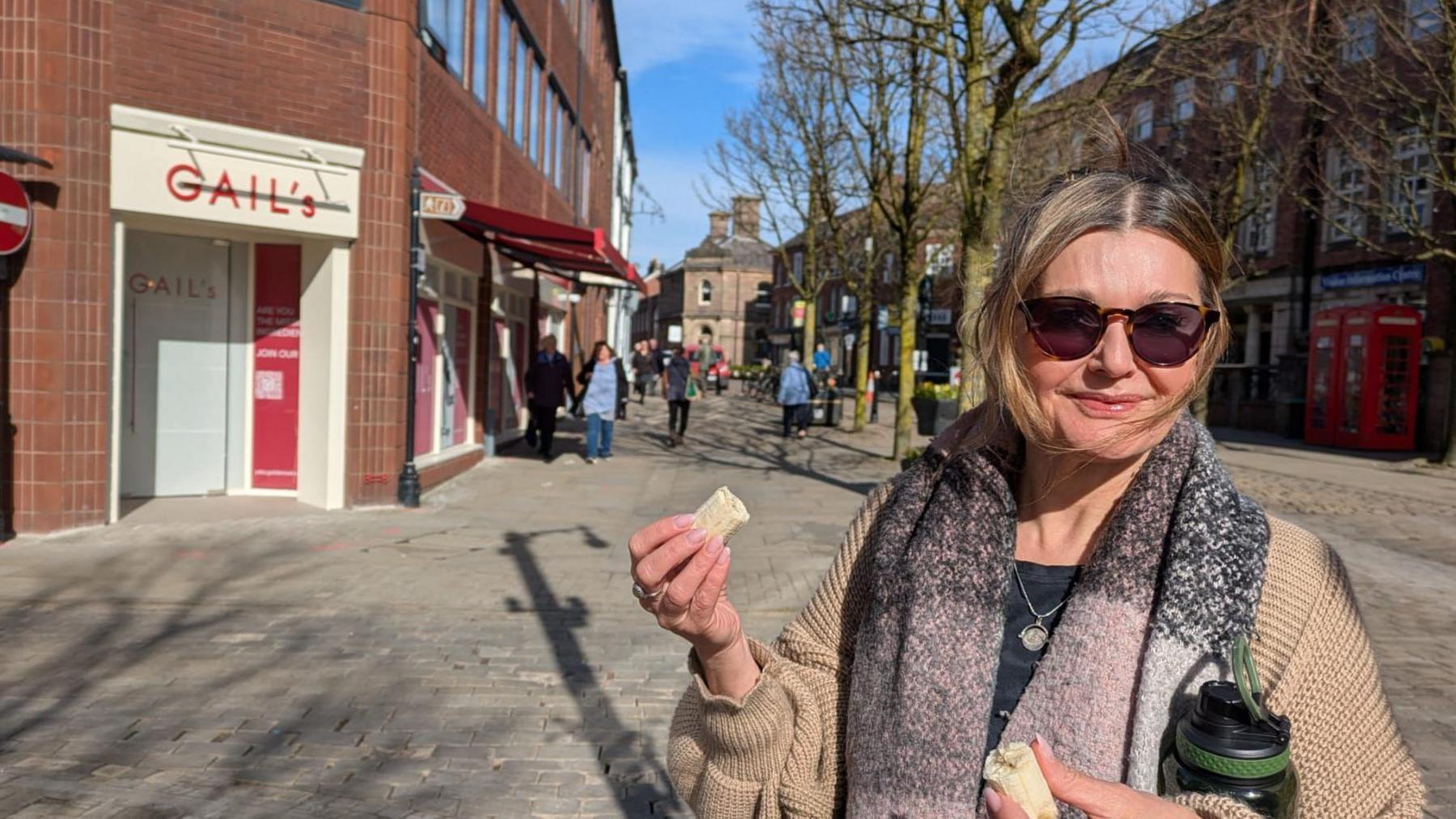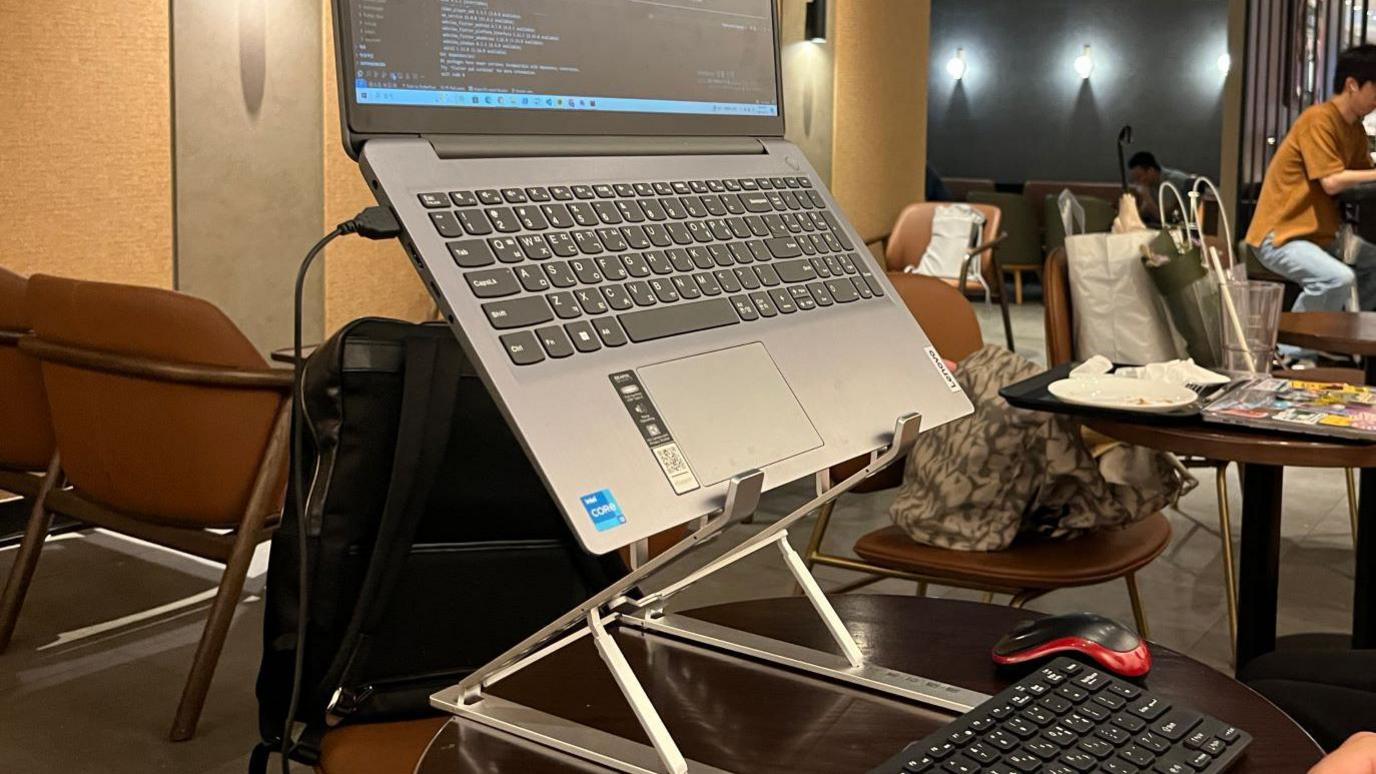How coffee chains like Costa lost the matcha generation
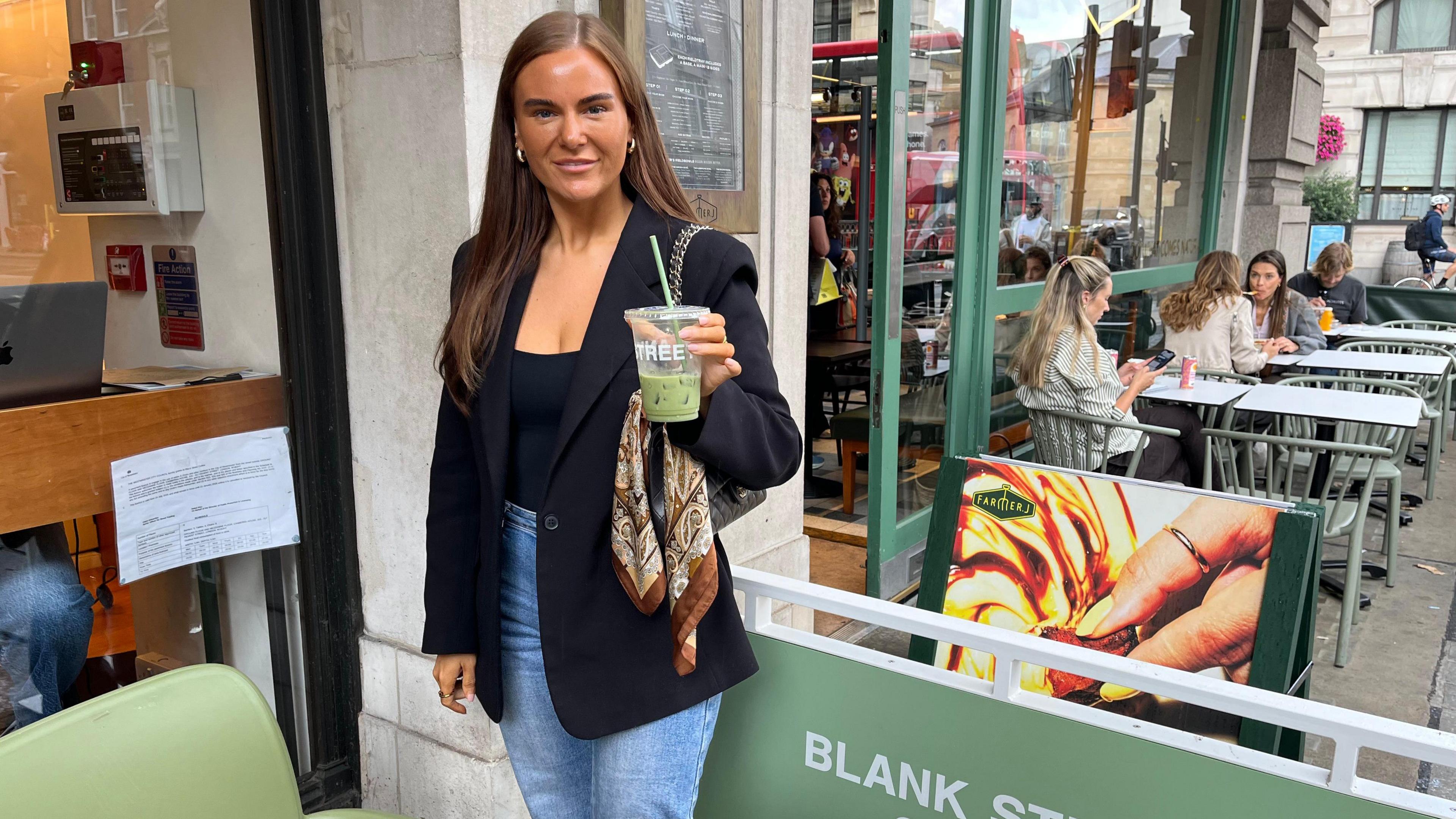
Lucy Williams enjoys an iced strawberry matcha at Blank Street Coffee
- Published
Lucy Williams is enjoying an iced strawberry matcha after going with her sister to her niece's first-ever haircut.
"I feel like a strawberry matcha is a coming out with your sister thing, rather than an everyday thing," she says.
But here in the UK, you can't get an iced strawberry matcha - or any kind of matcha at Costa Coffee.
Lucy is at Blank Street Coffee where a rainbow array of matcha drinks have gained the chain a cult following, including celebrity fans Molly-Mae Hague and Sabrina Carpenter.
Lucy drinks coffee at home every day, but buys a barista-made cup for when she wants a treat.
"There are only certain places I'd go for a coffee," she says and Costa is not on her list.
Costa's owner Coca-Cola is reportedly looking to sell the chain, with one analyst suggesting it could go for £2bn, external - about half of the $4.9bn (£3.9bn) it paid in 2019. So is something going wrong?
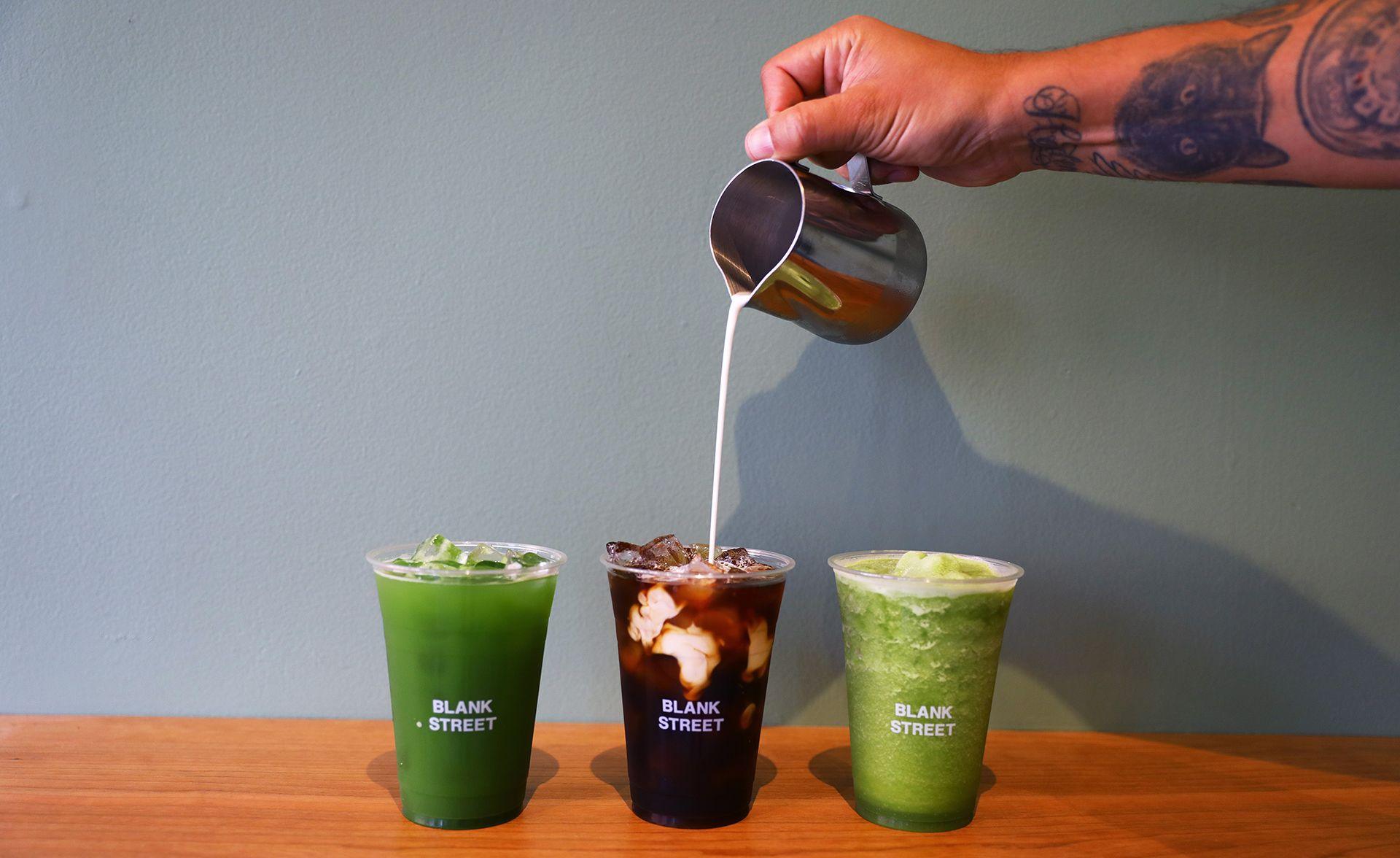
Blank Street Coffee began in Brooklyn in New York in 2020
Coffee and tea drinking trends are changing particularly among younger generations, analysts say, and when combined with higher coffee prices and cost of living pressures in general, chains like Costa are in hot water.
But not Blank Street which began in 2020 as a tiny coffee cart in the garden of a Brooklyn diner before expanding across New York, Washington and Boston. It opened its first London store in 2022 and now has about 35 in the capital with three more in Manchester, two in Birmingham and two in Edinburgh.
Its popularity has in part been driven by its TikTok appeal, with fans posting videos of themselves ordering in its minty fresh decorated cafes or at free tattoo pop up events.
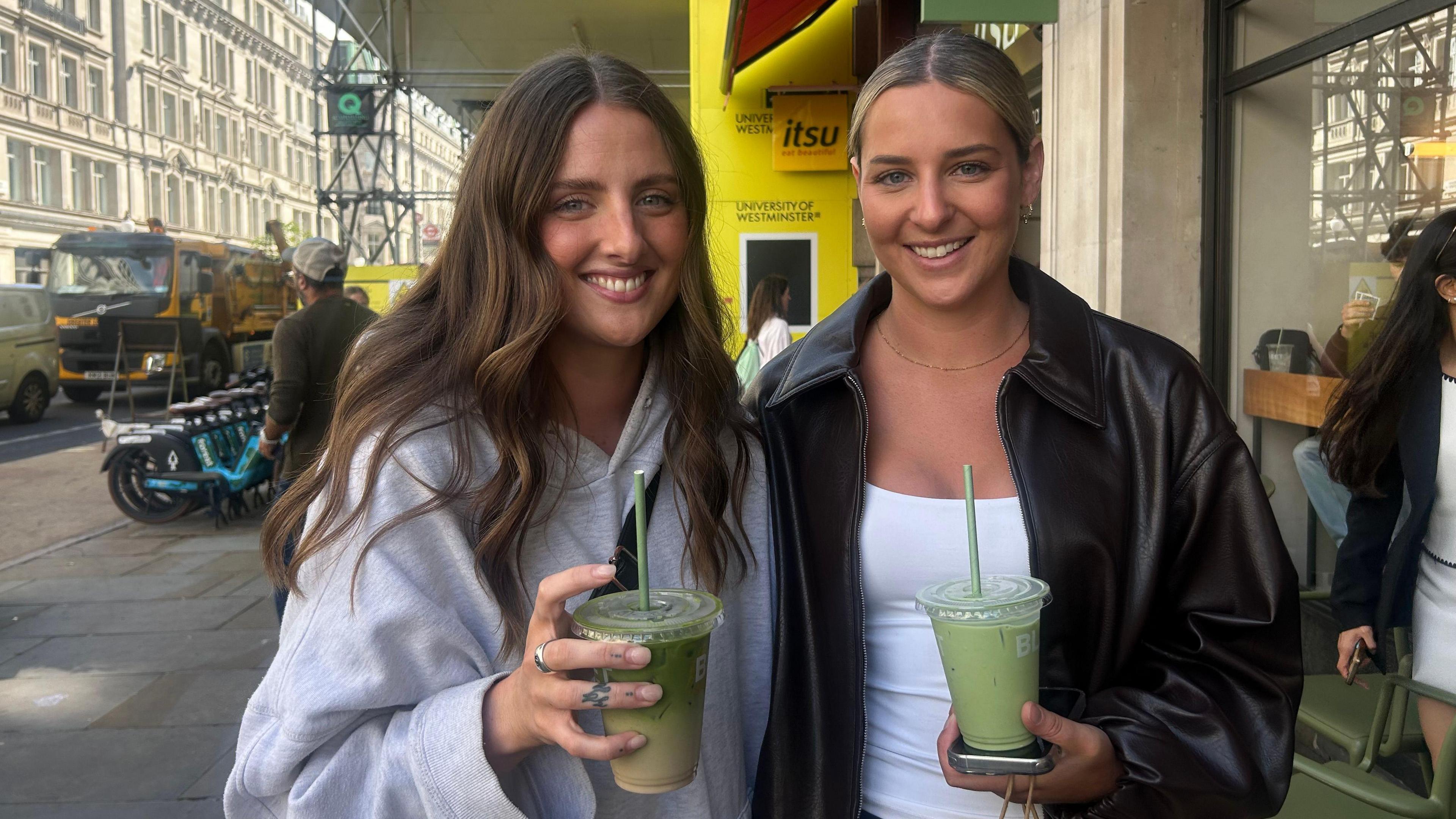
Bree Taylor and Rebecca Trow from Australia made a special trip to Blank Street while visiting London
For Australian travellers Bree Taylor and Rebecca Trow, both 27, Blank Street was on their London to-do list after seeing its pastel-hued drinks on TikTok.
"We saw it and were like 'we have to go there'. We saw it and came here specifically. We wanted to try it," says Rebecca.
Lauren Nicholson, 24, and Jordan Brookes, 27, were also drawn to the cafe for its brightly coloured matcha which cost just under £5 each.
Jordan says he started drinking matcha about two months ago and is now "hooked".
He's not the only one - the worldwide matcha craze means supplies of the bright green Japanese tea are drying up and the demand is pushing up prices.
Costa's rivals have jumped on the trend with Starbucks and Pret offering an iced matcha latte and Nero a strawberry and vanilla iced matcha latte.
And it is not just a London thing - popular national chains like Gail's and Black Sheep Coffee make it. The latter offers green matcha waffles too.
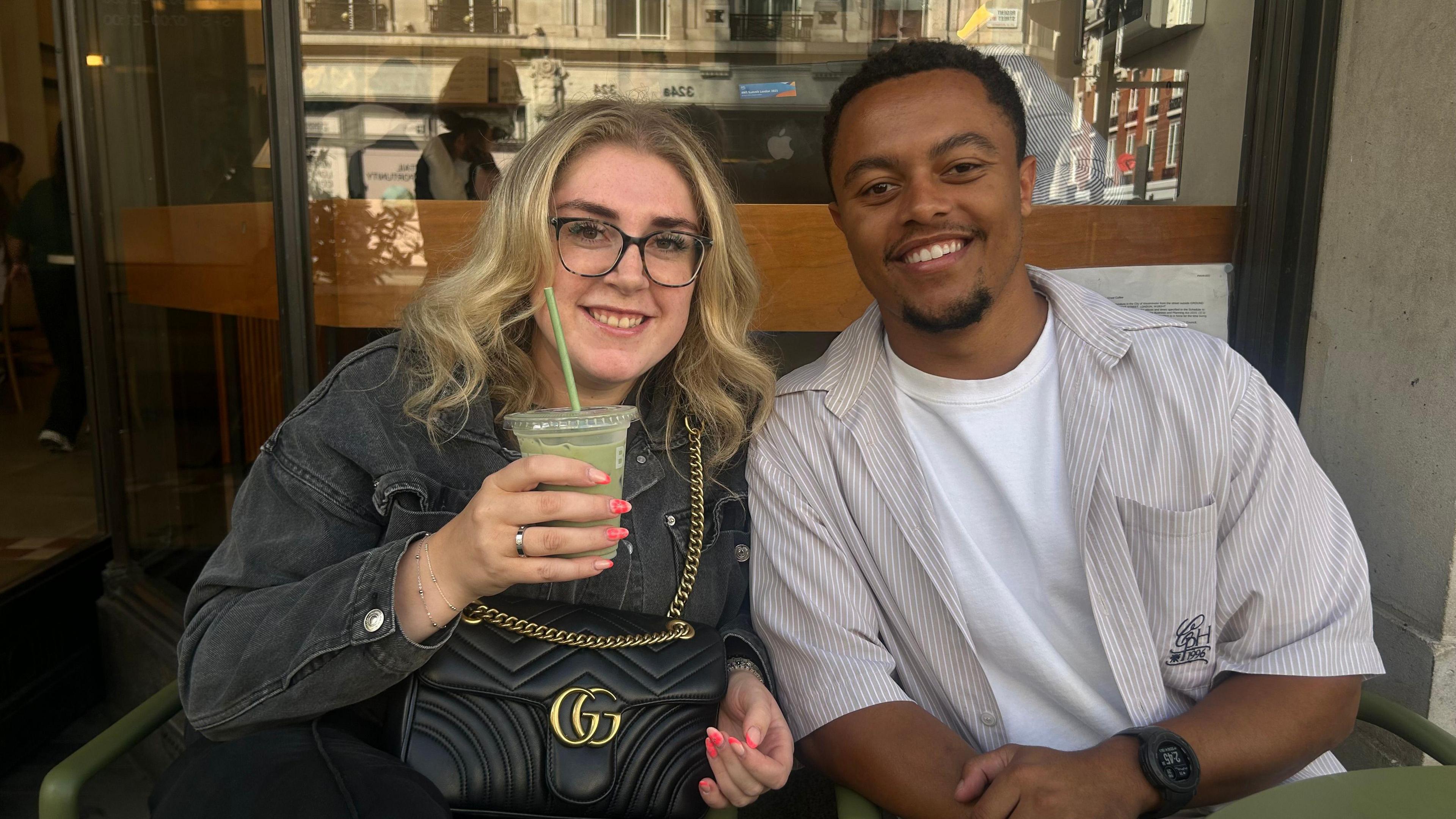
Lauren and Jordan say they prefer smaller or independent coffee chains
Seeking out a new luxury drink as an affordable treat is a trend that emerged since Covid and has continued to grow as the cost of living remains high.
"If you think about a lot of gen Z, they're looking at matcha, they're looking at brews, they're more healthy. My late teenagers, they don't drink caffeinated beverages at all," says Danni Hewson, head of financial analysis at AJ Bell.
Traditionally, matcha is considered to contain antioxidants and have a more tempered caffeine effect than the "high" and "crash" of regular coffee but there is some debate over any proven health benefits.
Alongside standard coffees, Costa serves a variety of frappé and fruit coolers, but these contain syrups and can be topped with whipped cream which may not appeal to the clean-living green-juice sippers among us.
With the rising popularity of home coffee machines, chains have to come up with special reasons to get customers through the door.
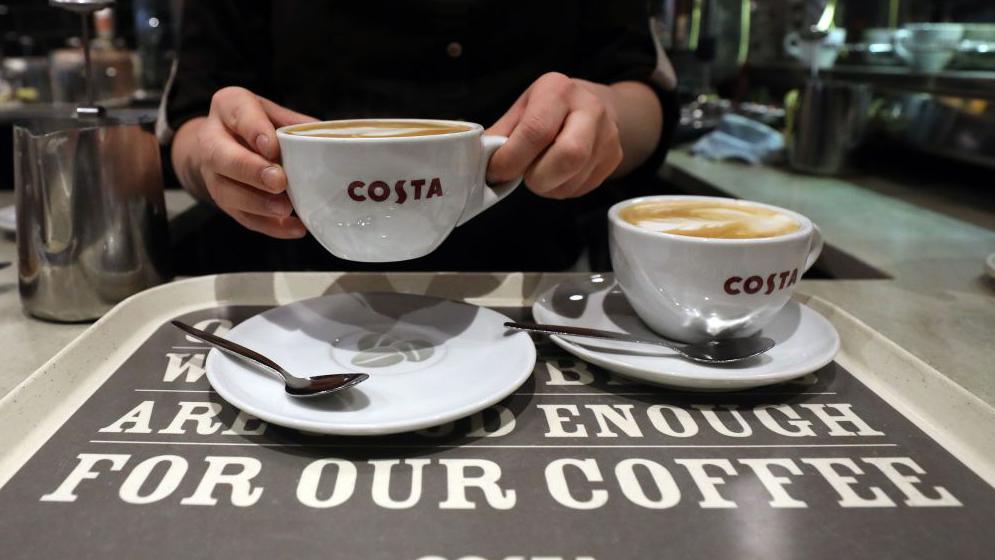
Costa is not the only brand struggling with the changing UK coffee market, says Clive Black, vice chairman of independent investment group Shore Capital.
The rise of smaller chains and artisanal independent stores have also "eaten into the share" of the major chains, he adds.
Young people increasingly care about spending choices - Lauren and Jordan both say they generally avoid big coffee chains in favour of supporting smaller businesses, but also because of considerations about the taste.
And when a coffee can cost you the best part of £5 you expect something you can't make yourself.
"A straight up latte isn't a treat, that's a necessity," says Clare Bailey, independent retail analyst and founder of The Retail Champion.
"I feel like businesses that don't reimagine themselves and don't respond to consumer behaviour, and perhaps get a little complacent, are the ones who end up in trouble," she adds.
Coca-Cola's chief executive James Quincey admitted to an investor call last month Costa was "not where we wanted it to be" and the company was "thinking about how we might want to find new avenues to grow in the coffee category".
Costa began as a London roastery in 1971 and has since expanded to more than 4,000 stores and with operations in 50 countries. It is a prominent feature of many a high street in small towns across the country, often appealing to families.
In the 2023 financial year, the most recent report, Costa reported revenues of £1.2bn, but said inflationary pressures including increased prices of goods, energy and pay resulted in an operating loss of £14m.
Now Coca-Cola is working with investment bank Lazard to explore its options for the coffee chain, including a potential sale, according to reports from Reuters and Sky News. Clive, from Shore Capital, says it is not clear why Coca-Cola bought Costa in the first place.
Costa, Coca-Cola and Lazard were all approached for comment.
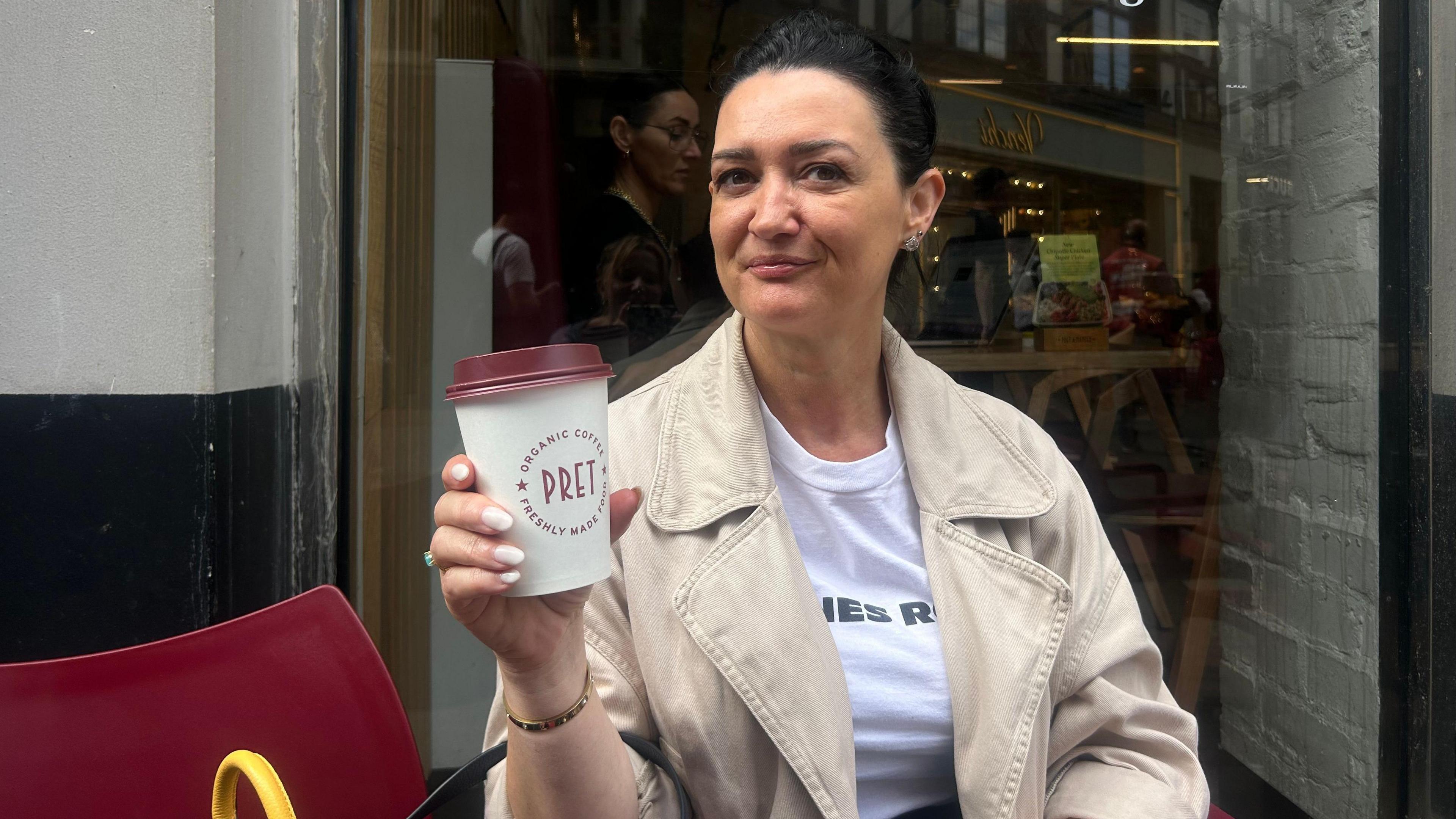
Mimoza has a Pret coffee subscription which gives her discounts
There are now 11,450 branded coffee chain outlets across the UK, up from 9,800 five years ago, according to World Coffee Portal.
And the number of independent coffee shops has also risen over the last five years from 11,700 to around 12,400 now.
With so much choice, competition to attract customers heats up. Mimoza Emsa, 47, says while she used to drink Costa, she now always goes to Pret because it's close to her work and she has its subscription which offers discounts.
"It's really convenient. It's one of the things that persuades me to have coffee here," she says.
Costa and similar chains are not as quick and cheap as a Greggs or McDonalds coffee, but also don't offer the higher-end experience for when we want to treat ourselves.
"We've seen all these middle of the road retailers struggle because they're neither one thing nor the other," says retail analyst Clare.
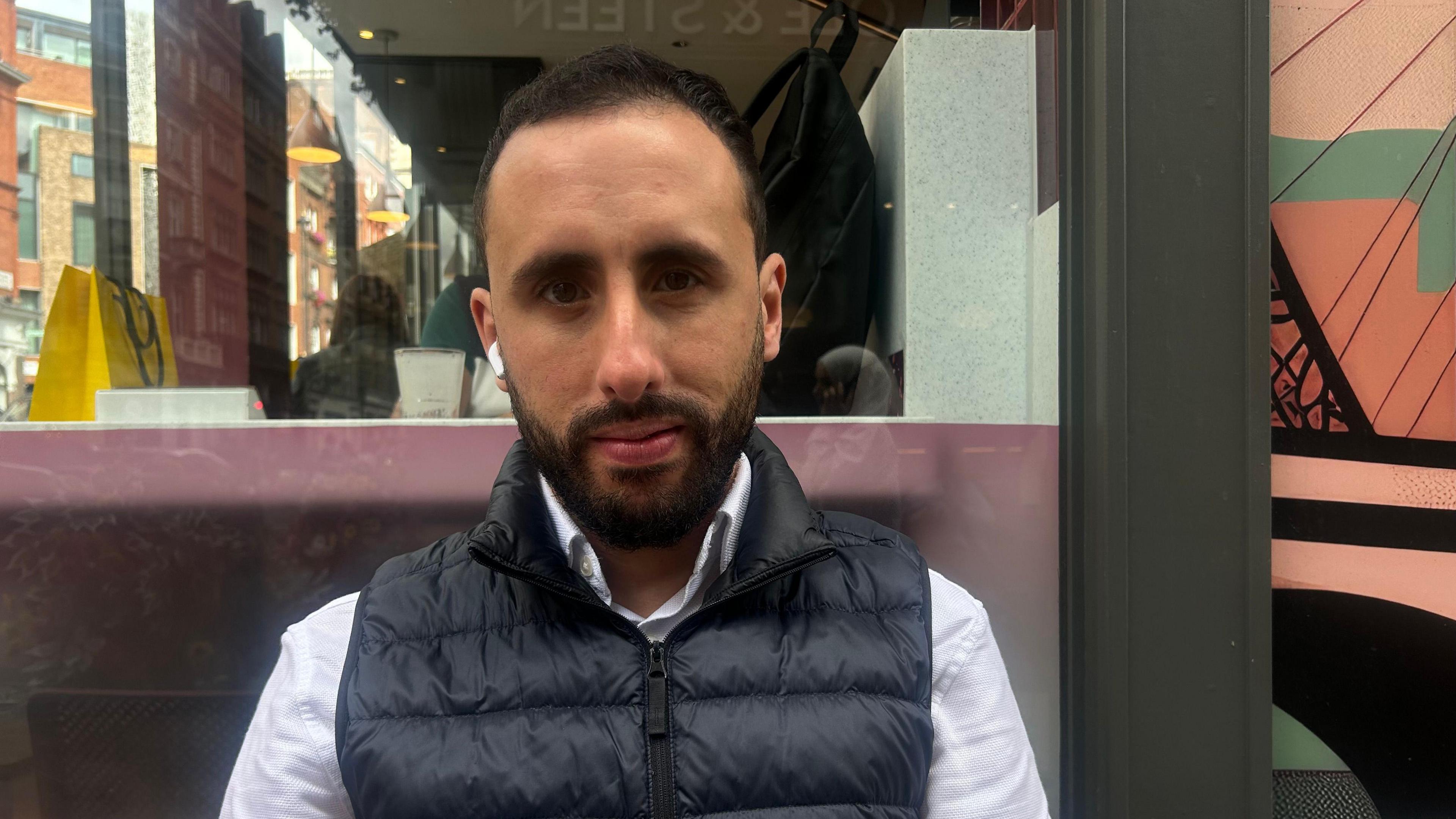
Rafik likes a Costa close to his work where he can sit outside
Despite these shifts, Costa still has loyal customers.
Rafik Khezmadji, 37, says he comes to Costa because it's close to work, but he also enjoys being able to sit outside and savour his coffee.
"I enjoy having this moment to myself," he says.
For 20-year-old fashion business student Megan Penfold the coffee at Costa is "not the worst and not the best". She has stopped at the cafe on Wigmore Street in London for a quick black coffee.
"Trends don't affect me as much. I like what I like," she says.
Correction: An earlier version of this story said Coca-Cola bought Costa for £4.9bn in 2019. The figure was actually $4.9bn, which was worth about £3.9bn.
More weekend picks
- Published9 March
